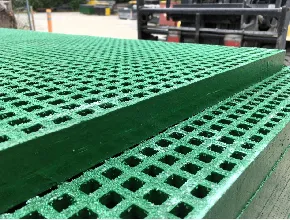loading...
- No. 9, Xingyuan South Street, Dongwaihuan Road, Zaoqiang County, Hengshui, Hebei, China
- admin@zjcomposites.com
- +86 15097380338
- Welcome to visit our website!
water treatment systems for well water
Water Treatment Systems for Well Water
Access to clean and safe drinking water is a fundamental necessity for human health and well-being. For many households, especially those in rural areas, well water serves as the primary source of water. However, well water can sometimes be contaminated with harmful substances such as bacteria, heavy metals, and chemicals, making it essential to implement effective water treatment systems. This article explores the key components and techniques involved in treating well water to ensure safe consumption.
Understanding Well Water Contamination
Well water can become contaminated through various sources, including agricultural runoff, septic systems, and the natural leaching of minerals from the surrounding soil. Common contaminants include coliform bacteria, nitrates, iron, manganese, and pesticides. The presence of these impurities can lead to health issues if the water is consumed untreated. Hence, it is crucial for well owners to regularly test their water, preferably once a year, for a comprehensive assessment of its quality.
Types of Water Treatment Systems
There are several methods for treating well water, each designed to address specific contaminants
. Below are some of the most common water treatment systems1. Filtration Systems
Filtration is one of the most common methods used to treat well water. It utilizes various types of filters to remove particulates, sediment, and some contaminants. There are several types of filtration systems, including
- Activated Carbon Filters These are effective at removing chlorine, volatile organic compounds (VOCs), and some pesticides. They work by adsorbing impurities onto the surface of the carbon filter. - Reverse Osmosis (RO) Systems RO systems push water through a semipermeable membrane, effectively removing a wide range of contaminants such as heavy metals, salts, and some bacteria. - Sediment Filters These filters are designed to trap and remove larger particles that can cause turbidity and cloudiness in water.
2. Chemical Treatment
water treatment systems for well water

Chemical treatment methods can also be employed to disinfect well water. Chlorination is a common process, where chlorine is added to the water to kill bacteria and viruses. However, it is crucial to monitor chlorine levels to avoid excessive concentrations, which can be harmful. Ultraviolet (UV) treatment is another effective method that uses UV light to inactivate microorganisms, making it a chemical-free disinfection option.
3. Water Softeners
Hard water, characterized by high levels of calcium and magnesium, can cause scaling in pipes and appliances. Water softeners utilize an ion exchange process to replace these minerals with sodium ions, effectively reducing hardness. This treatment not only improves water quality but also enhances the lifespan of plumbing systems and appliances.
4. Distillation
Distillation involves boiling water and then condensing the steam back into a liquid. This method effectively removes most contaminants, including heavy metals and microorganisms, as they do not vaporize at the same temperature as water. While distillation is effective, it may not be practical for large volumes of water due to energy costs and time constraints.
Importance of Regular Maintenance
Implementing a water treatment system is just the first step; maintaining the system is essential for its longevity and effectiveness. Regular inspections, replacement of filters, and monitoring of chemical levels are necessary to ensure that the system functions optimally. It is also advisable to periodically retest well water quality to identify any changes in contaminants over time.
Conclusion
In conclusion, treating well water is vital for ensuring the health and safety of those who rely on this resource. By understanding the common contaminants and the various treatment methods available, well owners can make informed decisions regarding the most suitable water treatment systems for their needs. Regular testing and maintenance will not only provide peace of mind but also contribute to the overall quality of life by supplying clean, safe drinking water. As water quality continues to be a pressing concern, investing in reliable water treatment solutions is an essential step for well water users.
-
The Rise of FRP Profiles: Strong, Lightweight, and Built to LastNewsJul.14,2025
-
SMC Panel Tanks: A Modern Water Storage Solution for All EnvironmentsNewsJul.14,2025
-
GRP Grating: A Modern Solution for Safe and Durable Access SystemsNewsJul.14,2025
-
Galvanized Steel Water Tanks: Durable, Reliable, and Ready for UseNewsJul.14,2025
-
FRP Mini Mesh Grating: The Safer, Smarter Flooring SolutionNewsJul.14,2025
-
Exploring FRP Vessels: Durable Solutions for Modern Fluid HandlingNewsJul.14,2025
-
GRP Structures: The Future of Lightweight, High-Performance EngineeringNewsJun.20,2025
